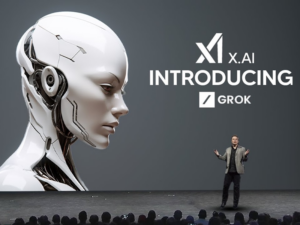TL;DR
- The EU is imposing strict rules on tech giants, affecting the launch of AI tools in the region.
- Tech companies argue that these rules will hinder innovation and lead to missed opportunities for EU consumers.
- However, civil society groups claim that consumers are not missing out, as companies need to ensure their AI tools comply with EU regulations.
Challenges for tech giants to launch AI tools due to regulation
The European Union has been at the forefront of regulating tech giants, and its latest move involves imposing strict rules on the launch of AI tools in the region. According to a recent article by Euronews, tech companies such as Google and Meta are facing challenges in launching their AI tools in the EU due to the region’s strict regulations. The article states that Google’s AI Overviews tool, which was launched in the US in 2024, is only available in eight EU member states, with its launch in the remaining 19 EU countries still uncertain.
Regulation aims to protect consumers
The EU’s regulations, including the Digital Services Act and the General Data Protection Regulation, aim to protect consumers’ rights and ensure that tech companies operate in a transparent and fair manner. However, tech companies argue that these regulations are too restrictive and will hinder innovation in the region. They claim that the rules will lead to missed opportunities for EU consumers, who will not have access to the latest AI tools and technologies.
On the other hand, civil society groups argue that consumers are not missing out, as companies need to ensure that their AI tools comply with EU regulations. Sébastien Pant, deputy head of communications at the European consumer organisation BEUC, stated that consumers in the EU expect AI tools to be safe and respectful of their rights. He added that companies need to make sure that new features, products, or technologies comply with existing laws before they hit the EU market.
The implications of the EU’s regulations on tech giants are significant. The region’s strict rules may lead to a delay in the launch of AI tools, which could give other regions, such as the US, a competitive advantage. However, the EU’s approach may also set a precedent for other regions to follow, as they seek to regulate the tech industry and protect consumers’ rights.
Conclusion
In conclusion, the EU’s strict rules on tech giants have significant implications for the launch of AI tools in the region. While tech companies argue that these rules will hinder innovation, civil society groups claim that consumers are not missing out, as companies need to ensure that their AI tools comply with EU regulations. As the tech industry continues to evolve, it is likely that we will see more regulations and rules imposed on tech giants, which will have a significant impact on the industry as a whole.
References
[^1]: Cynthia Kroet (2025). “Blocking tech giants’ AI tools – no downside for EU consumers, claims civil society“. Euronews. Retrieved 2025-04-10.
[^2]: Euronews (2025). “China’s DeepSeek finds a way to help AI get better at answering questions – here’s how it works“. Euronews. Retrieved 2025-04-10.
[^3]: Corporate Europe Observatory (2022). “Big Tech’s last minute attempt to tame EU tech rules“. Corporate Europe Observatory. Retrieved 2025-04-10.
[^4]: White & Case LLP (2025). “AI Watch: Global regulatory tracker – United States“. White & Case LLP. Retrieved 2025-04-10.
[^5]: David Evan Harris (2024). “Not Open and Shut: How to Regulate Unsecured AI“. CIGI Online. Retrieved 2025-04-10.
[^6]: Issues.org (2025). “Don’t Let Governments Buy AI Systems That Ignore Human Rights“. Issues.org. Retrieved 2025-04-10.



